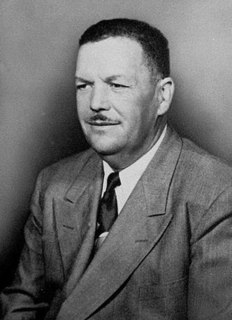Related Research Articles

The civil rights movement was a political movement and campaign from 1954 to 1968 in the United States to abolish institutional racial segregation, discrimination, and disenfranchisement throughout the United States. The movement has its origins in the Reconstruction era during the late 19th century, although it made its largest legislative gains in the 1960s after years of direct actions and grassroots protests. The social movement's major nonviolent resistance and civil disobedience campaigns eventually secured new protections in federal law for the civil rights of all Americans.

The Student Nonviolent Coordinating Committee was the principal channel of student commitment in the United States to the civil rights movement during the 1960s. Emerging in 1960 from the student-led sit-ins at segregated lunch counters in Greensboro, North Carolina, and Nashville, Tennessee, the Committee sought to coordinate and assist direct-action challenges to the civic segregation and political exclusion of African Americans. From 1962, with the support of the Voter Education Project, SNCC committed to the registration and mobilization of black voters in the Deep South. Affiliates such as the Mississippi Freedom Democratic Party and the Lowndes County Freedom Organization in Alabama also worked to increase the pressure on federal and state government to enforce constitutional protections.
The Mississippi Freedom Democratic Party (MFDP), also referred to as the Freedom Democratic Party, was an American political party created in 1964 as a branch of the populist Freedom Democratic organization in the state of Mississippi during the Civil Rights Movement. It was organized by African Americans and whites from Mississippi to challenge the established power of the Mississippi Democratic Party, which at the time allowed participation only by whites, when African-Americans made up 40% of the state population.
Freedom Summer, also known as the Freedom Summer Project or the Mississippi Summer Project, was a volunteer campaign in the United States launched in June 1964 to attempt to register as many African-American voters as possible in Mississippi. Blacks had been restricted from voting since the turn of the century due to barriers to voter registration and other laws. The project also set up dozens of Freedom Schools, Freedom Houses, and community centers in small towns throughout Mississippi to aid the local Black population.

The Southern Christian Leadership Conference (SCLC) is an African-American civil rights organization based in Atlanta, Georgia. SCLC is closely associated with its first president, Martin Luther King Jr., who had a large role in the American civil rights movement.
Lawrence Guyot Jr. was an American civil rights activist and the director of the Mississippi Freedom Democratic Party in 1964.

Robert Parris Moses was an American educator and civil rights activist, known for his work as a leader of the Student Nonviolent Coordinating Committee (SNCC) on voter education and registration in Mississippi during the Civil Rights Movement, and his co-founding of the Mississippi Freedom Democratic Party. As part of his work with the Council of Federated Organizations (COFO), a coalition of the Mississippi branches of the four major civil rights organizations, he was the main organizer for the Freedom Summer Project.
Annie Bell Robinson Devine (1912–2000) was an American activist in the Civil Rights Movement.

Aaron Henry was an American civil rights leader, politician, and head of the Mississippi branch of the NAACP. He was one of the founders of the Mississippi Freedom Democratic Party which tried to seat their delegation at the 1964 Democratic National Convention.
Victoria Jackson Gray Adams was an American civil rights activist from Hattiesburg, Mississippi. She was one of the founding members of the influential Mississippi Freedom Democratic Party.
The Council of Federated Organizations (COFO) was a coalition of the major Civil Rights Movement organizations operating in Mississippi. COFO was formed in 1961 to coordinate and unite voter registration and other civil rights activities in the state and oversee the distribution of funds from the Voter Education Project. It was instrumental in forming the Mississippi Freedom Democratic Party. COFO member organizations included the National Association for the Advancement of Colored People.

Vernon Ferdinand Dahmer, Sr. was a leader in the Civil Rights Movement and president of the Forrest County chapter of the NAACP in Hattiesburg, Mississippi. He was murdered by the White Knights of the Ku Klux Klan for his work on recruiting African Americans to vote.
Jack Minnis (1926-2005) was an American activist, and the founder and director of opposition research for the Student Nonviolent Coordinating Committee in the Civil Rights Movement era. Minnis researched federal expenditures and state and local subversion of racial equality. Minnis was white, but remained affiliated with SNCC even after it adopted a "blacks only" personnel policy, its only white employee for a long time. He helped to train such workers as Stokely Carmichael, Marion Barry, and John Lewis.
Hollis Watkins is an activist who was part of the Civil Rights Movement activities in the state of Mississippi during the 1960s. He became a member and organizer with the Student Nonviolent Coordinating Committee (SNCC) in 1961, was a county organizer for 1964's "Freedom Summer", and assisted the efforts of the Mississippi Freedom Democratic Party to unseat the regular Mississippi delegation from their chairs at the 1964 Democratic Party national convention in Atlantic City. He founded Southern Echo, a group that gives support to other grass-roots organizations in Mississippi. He also is a founder of the Mississippi Veterans of the Civil Rights Movement.
Carpenters for Christmas was conceived to counteract a series of church bombings and arson attacks in Mississippi during and following the Mississippi Freedom Summer in 1964. During the summer of 1964, the Council of Federated Organizations (COFO) organized a nationally supported campaign that challenged the racial segregation of the Mississippi Democratic Party and the state's systematic exclusion of black citizens from voting. Churches played a central role in this campaign, often housing Freedom Schools, serving as freedom election polling places, and serving as the venue for mass meetings. To counter this central role, segregationist forces began a campaign of terror against civil rights workers and the churches that gave them support.
Over the course of Freedom Summer, there were at least three murders, approximately 70 bombings or burnings, over 80 beatings, and over 1,000 arrests of civil rights activists. The COFO incident report, a single-spaced document that offered brief daily summaries, was over ten pages long.
Hartman Turnbow was a Mississippi farmer, orator, and activist during the Civil Rights Movement. On April 9, 1963, Turnbow was one of the first African Americans to attempt to register to vote in Mississippi, along with a group called the “First Fourteen”.
This is a timeline of the 1947 to 1968 civil rights movement in the United States, a nonviolent mid-20th century freedom movement to gain legal equality and the enforcement of constitutional rights for People of Color. The goals of the movement included securing equal protection under the law, ending legally-established racial discrimination, and gaining equal access to public facilities, education reform, fair housing, and the ability to vote.
David J. Dennis is a civil rights activist active in the movement since the 1960s. He grew up in the segregated area of Omega, Louisiana, and worked as co-director of the Council of Federated Organizations (COFO), as director of Mississippi's Congress of Racial Equality (CORE), and as one of the organizers of the Mississippi Freedom Summer of 1964. Dave Dennis worked closely with both Bob Moses and Medgar Evers as well as members of SNCC, the Student Nonviolent Coordinating Committee. Dennis' first involvement in the Civil Rights Movement was at a Woolworth sit-in organized by CORE and he went on to become a Freedom Rider in 1961. More recently Dennis has put his activism toward a new project, the Algebra Project, which is a nonprofit organization run by Bob Moses that aims to improve the mathematics education for minority children. Dennis also speaks about his experiences in the movement through an organization called Dave Dennis Connections.
Ralph Edwin King Jr., better known as Ed King, is a United Methodist minister, civil rights activist, and retired educator. He was a key figure in historic civil rights events taking place in Mississippi, including the Jackson Woolworth’s sit-in of 1963 and the Freedom Summer project in 1964. Rev. King held the position of Chaplain and Dean of Students, 1963–1967, at Tougaloo College in Jackson, Mississippi. At this critical juncture of the civil rights movement, historian John Dittmer described King as “the most visible white activist in the Mississippi movement.”
The Lowndes County Freedom Organization (LCFO), also known as the Lowndes County Freedom Party (LCFP) or Black Panther party, was an American political party founded during 1965 in Lowndes County, Alabama. The independent third party was formed by local African-American citizens led by John Hulett, and by staff members of the Student Nonviolent Coordinating Committee (SNCC) under the leadership of Stokely Carmichael.
References
- ↑ Oral history with Sheila Michaels, Civil Rights in Mississippi digital archive, University of Southern Mississippi, June 5, 1999 (see http://www.usm.edu/crdp/index.html)
- ↑ Oral History with Sandra Adickes, Civil Rights in Mississippi digital archive, University of Southern Mississippi, October 21, 1999
- ↑ Bruce Hilton, Delta Ministry, (McMillan Publishing, New York, New York), 1969
- ↑ Curry, Constance W. Silver Rights, Chapel Hill, (Algonquin Books of Chapel Hill, Workman Publishing), 1995, pp. 154-57, 173-75
- ↑ Tusa, Bobs M, and Randall, Herbert. Faces of Freedom Summer, (Tuscaloosa, University of Alabama Press), 2001. pp. 26, 28.